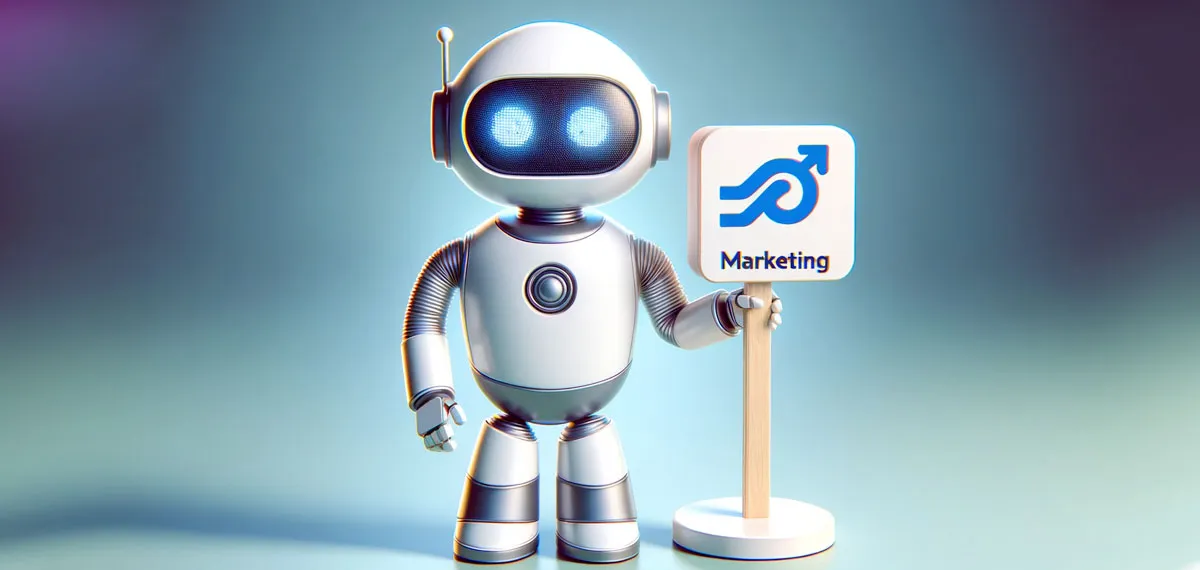If you haven’t been living under a rock, you’ll notice that Artificial Intelligence (AI) is taking center stage online, with AI marketing chatbots emerging as indispensable tools for businesses. As we step into 2024, the demands placed on these chatbots have grown, and businesses are now seeking more sophisticated features to stay competitive. Here are the key features that will define AI marketing chatbots in 2024:
Advanced Natural Language Processing (NLP):
Advanced NLP is the cornerstone of an effective AI marketing chatbot. This feature enables the chatbot to understand the nuances of human language, making interactions more conversational and engaging. By analyzing user input at a deeper level, the chatbot can provide more accurate and contextually relevant responses, significantly improving the overall user experience.
Multilingual Support:
In our interconnected world, businesses often operate on a global scale, catering to diverse audiences with varied linguistic preferences. Multilingual support in AI marketing chatbots is crucial for breaking down language barriers and ensuring that users from different regions can interact seamlessly. Chatbots with this feature can adapt to user preferences, opening up new markets and fostering inclusivity.
Contextual Understanding:
A chatbot's ability to understand and retain context is a game-changer. This feature allows the chatbot to remember past interactions, track user journeys, and adapt responses based on the evolving conversation. By maintaining context, the chatbot can provide more personalized and relevant information, creating a smoother and more intuitive user experience.

Interested in a custom AI bot for your website or ecommerce store? Get in touch here.
Integrated Analytics and Reporting:
To measure the impact and effectiveness of AI marketing chatbots, businesses need robust analytics and reporting capabilities. These features allow organizations to track key metrics such as user engagement, popular queries, and overall satisfaction. By analyzing this data, businesses can make informed decisions to optimize the chatbot's performance and enhance its contribution to marketing strategies.
Personalization Capabilities:
Personalization is at the heart of modern marketing, and AI marketing chatbots with advanced personalization capabilities take user engagement to the next level. These chatbots analyze user behavior, preferences, and historical data to tailor responses and recommendations. By delivering content that resonates with individual users, businesses can strengthen customer relationships, drive conversions, and increase brand loyalty.
Voice Recognition:
The integration of voice recognition technology into AI marketing chatbots adds a new dimension to user interactions. This feature enables users to engage with the chatbot using spoken commands, mimicking natural conversation. Voice recognition not only enhances accessibility but also caters to the growing trend of voice-activated devices, providing users with a more convenient and hands-free experience.

E-commerce Integration:
For businesses in the retail sector, e-commerce integration is a game-changer. An AI marketing chatbot that seamlessly integrates with e-commerce platforms can guide users through product catalogs, provide personalized recommendations, and facilitate smooth and secure transactions. This integration streamlines the user journey, turning the chatbot into a valuable assistant in the online shopping process.
Social Media Integration:
Social media is a powerhouse in the world of marketing, and chatbots that can operate on popular platforms extend their reach and impact. Social media integration allows businesses to meet users where they already spend their time, whether it's on Facebook Messenger, WhatsApp, or other platforms. This feature facilitates direct communication, enables real-time engagement, and enhances brand visibility on social media channels.
Proactive Engagement:
While many chatbots are reactive, waiting for user queries, proactive engagement takes the initiative to start conversations. By analyzing user behavior, preferences, and historical interactions, a chatbot can anticipate user needs and initiate relevant conversations. Proactive engagement guides users through the sales funnel, offering assistance, and providing valuable information before users even realize they need it.

Security and Compliance:
In an era where data security and privacy are paramount, AI marketing chatbots must prioritize security features and compliance with relevant regulations. This includes robust encryption protocols, secure data storage practices, and adherence to privacy standards. A chatbot that prioritizes security builds trust with users, assuring them that their data is handled responsibly and confidentially.
Conclusion:
As we progress into 2024, businesses should not only recognize the importance of these features but also leverage them strategically. AI marketing chatbots equipped with these advanced capabilities can be transformative, and not only provide a competitive edge, but also become instrumental in sculpting a digital ecosystem where personalized, efficient, and engaging interactions seamlessly converge.
Is your business ready for 2024? Don’t get left behind. Get in touch here.





